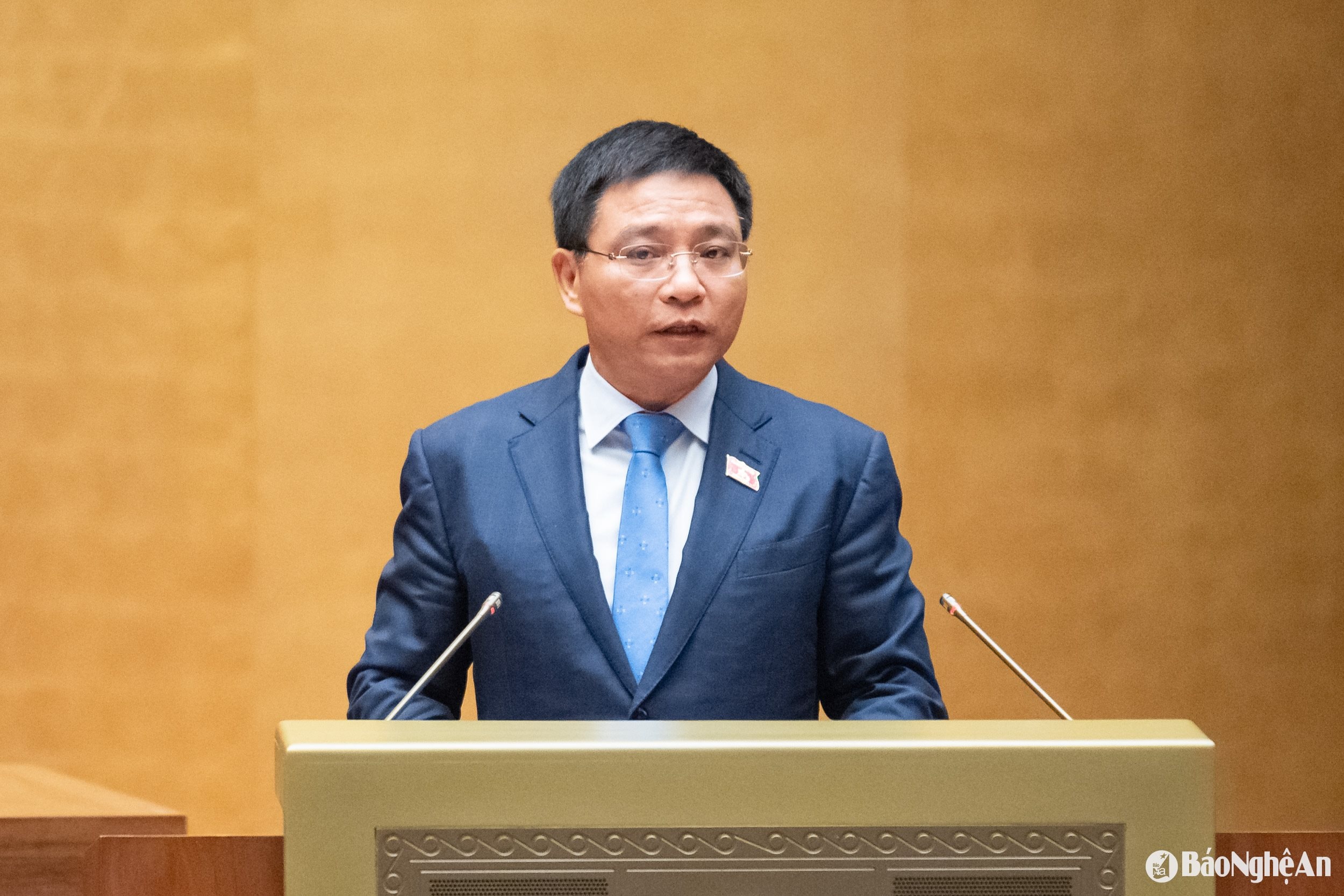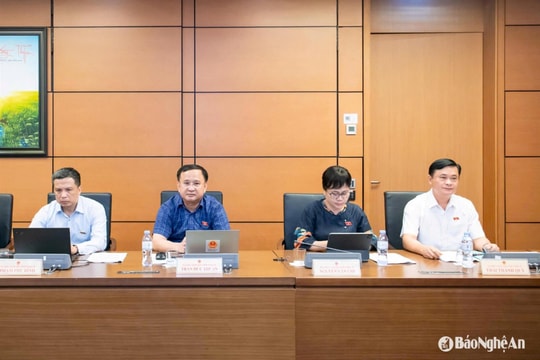National Assembly agrees to continue reducing VAT by 2% until the end of 2026
From July 1, 2025 to December 31, 2026, the VAT rate will be reduced by 2% for groups of goods and services currently subject to a tax rate of 10%, down to 8%.
.jpg)
On the morning of June 17, with 452/453 delegates participating in the vote, the 9th Session of the 15th National Assembly officially passed the National Assembly Resolution on continuing to implement the policy of reducing value-added tax (VAT) in the period of 2025-2026.
According to the Resolution, from July 1, 2025 to December 31, 2026, the VAT rate will be reduced by 2% for groups of goods and services currently subject to a tax rate of 10%, down to 8%. This tax reduction does not apply to some groups of goods and services such as: telecommunications; finance; banking; securities; insurance; real estate business; metal products; mining products (except coal); goods and services subject to special consumption tax (except gasoline).
The National Assembly assigned the Government to guide the implementation of VAT rate reduction and organize the implementation of this policy in a public, transparent and effective manner, ensuring the right goal of supporting people, businesses and stimulating domestic consumption.

From 2022 to the first 6 months of 2025, the National Assembly has repeatedly resolved to reduce the VAT rate by 2% as one of the key solutions to support the economy to overcome the difficult period. This policy, along with a series of other tax, fee and charge reduction measures, has practically contributed to helping businesses reduce input costs, improve production and business efficiency, improve profits and create favorable conditions to increase domestic purchasing power.
However, in addition to the achievements, the Vietnamese economy is still facing many challenges. Growth drivers such as production, consumption and investment have not yet created a clear breakthrough. Domestic purchasing power has improved but still slowly. Some industries and production and business sectors still face many difficulties due to high input costs. In particular, the US's announcement to apply reciprocal tax measures to a number of countries, including Vietnam, is increasing pressure on the domestic economy, especially in terms of exports and international trade.
.jpg)
Domestic consumption demand is therefore still identified as an important driving force for economic growth in the current context. The VAT reduction policy is expected to create more room to support businesses to recover and expand production and business activities, while stimulating personal consumption, contributing to strengthening the economic recovery momentum in 2025 and 2026.
With a 2% reduction in VAT, the cost of goods and services will decrease, thereby promoting consumption, increasing the circulation of goods and improving purchasing power in the market. At the same time, this also helps businesses reduce production costs, lower product prices, thereby improving competitiveness in the domestic and export markets.
.jpg)
It is expected that the total reduction in state budget revenue due to the implementation of the VAT reduction policy in the last 6 months of 2025 and the whole year of 2026 will be about 121,740 billion VND. Of which, the last 6 months of 2025 alone will decrease by about 39,540 billion VND and the whole year of 2026 will decrease by about 82,200 billion VND.
Although this is a fairly large number in the context of the State budget needing to balance many important spending tasks, the National Assembly assessed that continuing to implement the VAT reduction policy is necessary and appropriate, helping to increase the spillover effect of stimulus measures, supporting economic recovery and macroeconomic stability, while clearly demonstrating the spirit of companionship and sharing difficulties with the people and the business community.
This is also an important solution to institutionalize the socio-economic development target for 2025 with a growth target of 8% or more, contributing to creating a solid foundation to achieve double-digit growth in the period 2026 - 2030.
Also this morning, the National Assembly voted to pass the Law amending and supplementing a number of articles of the Enterprise Law, with 455/457 National Assembly deputies present voting in favor.
After completing the above two contents, the National Assembly spent the entire working time on June 17 discussing in the hall: Additional assessment of the results of the implementation of the socio-economic development plan and the State budget in 2024; the implementation of the socio-economic development plan and the State budget in the first months of 2025; Approval of the State budget settlement in 2023; The transition to applying a number of specific mechanisms and policies that have been allowed by the National Assembly to be implemented in a number of localities after restructuring the apparatus and expanding administrative boundaries according to the policies of the Party and the State; Practice of thrift and anti-waste in 2024; Results of implementing the national goal on gender equality in 2024.

.jpg)


